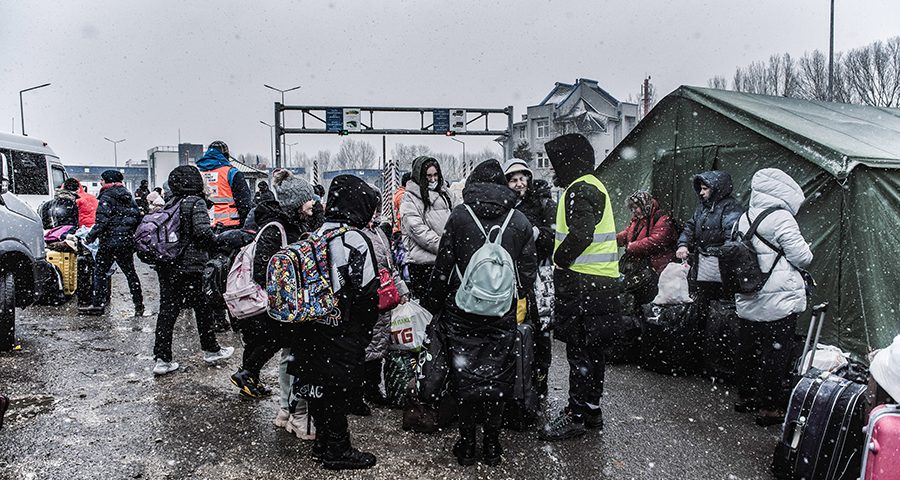Tackling Migration Crisis: What’s the plan, EU?

Refugees who recently crossed the border from Ukraine rest before moving on from a temporary camp in Palanca, Moldova, March 1, 2022. At least 660,000 people, mostly women and children, have fled Ukraine in the five days after Russia invaded — the most intense wave of European migration since at least the 1990s. (Laetitia Vancon/The New York Times)
Tackling Migration Crisis: What’s the Plan, EU?
****
One month into the Russia-Ukraine war, 10 million people (roughly 1/4 of the population) have fled their homes, with more that a third seeking refuge in the European Union. Ukraine’s neighbors have responded with compassion and eager political and economic support for the refugees, but will they manage to sustain this attitude and capability in the long run?
****
Russia’s invasion of Ukraine has set off one of the largest and fastest refugee movement in Europe since the end of the World War II. As of March 18, according to the UN, roughly 3,2 million people have arrived in bordering countries escaping the ongoing violence. However, with the potential number of refugees reaching up to 7 million according to some estimates, it seems like the migration crisis appears to be just getting started, bringing profound consequences for the European landscape. Should the displacement continue for years, it will mean severe long-term challenges for Ukraine, in a form of “brain drain” of unprecedented scale and loss of capable and well-educated work force, but also put additional strain on the economies and affect public perceptions in some of the host countries with scant resources and growing anti-immigrant sentiments. On the other hand, the migration brings new opportunities and may positively shift demographics and boost economic climate.
With any scenario, questions are to be raised, and decisions made about the future and legal status of the migrants, as well as the volumes of financial aid, and what more the European Union should do to ease the burden on primary hosts like Poland, Hungary, Slovakia, Romania and Moldova.
Meet us this week Thursday, March 24, 2022 at 17.00 CET in our virtual space on Zoom – and let’s delve into these together.
Our guest:

Vít Novotný is an expert on migration, asylum, border control, migrant integration, and religion at the Wilfried Martens Centre for European Studies. His previous activities at the Centre included the creation of centre-right policy narratives through edited volumes, in cooperation with the Centre’s member foundations.
Vít Novotný’s previous experience is in education, private, public and non-profit sectors in the UK (2004-10). He pursued undergraduate and postgraduate degrees in European studies, public administration and politics from universities in Czechia, the US and the UK. He has published widely on politics and current issues in Czech and English-language press.
Should you wish to take part in the upcoming discussion please fill in the registration form.
The REGISTRATION DEADLINE is 24 March, 2022 (Thursday), 12:00PM
Zoom meeting code will be sent to the confirmed participants 3 hours before the meeting starts.
In case of questions, please do not hesitate to contact the responsible project manager Evgenia Jarabik at evgenia.jarabik@schuman-institute.eu.
Looking forward to see you all in our chat room!
